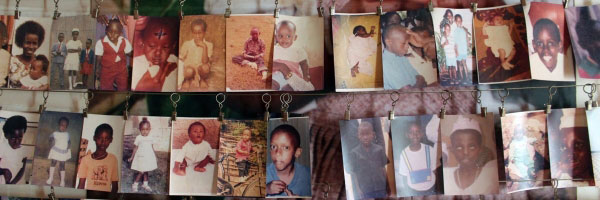On the International Day of Remembrance for Rwanda
Posted: April 7, 2017
Written by: Genocide Survivors Foundation
Today, April 7, many around the world will gather to remember and pay respect to the victims of the 1994 genocide against the Tutsi in Rwanda. The genocide which began in April of 1994 and lasted for approximately 100 days claimed more than one million lives.
Today, 23 years after the genocide, survivors still deal with many of the consequences of the genocide. Despite some efforts from the Rwandan government and a number of nonprofit organizations and NGO’s, the needs of survivors remain many and varied, ranging from lack of proper housing, educational opportunities, unemployment, lack of treatment for some of the physical wounds suffered during the genocide as well as untreated trauma.

Genocide survivors in Rwanda are also often taken back by the continuing presence of genocide ideology in Rwanda. Year after year since the genocide, a number of survivors continue to be threatened and even killed by those who killed their families in 1994. This past week alone as the commemoration period approached, a number of newspaper articles told of survivors being threatened and their cows being hacked with machetes as a form of intimidation and expression of continuing genocide ideology.

A key part of this year’s commemoration theme in Rwanda is about fighting genocide ideology and Genocide Survivors Foundation (GSF) hopes that the discussion will lead to more efforts to make sure that survivors lives are protected from those who still harbor genocide ideology.
Over the next 100 days of remembrance and beyond, GSF stands with survivors of the 1994 genocide against the Tutsi and will continue to advocate on their behalf.
« Back to News + Blog
